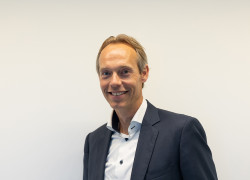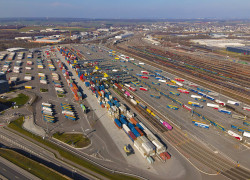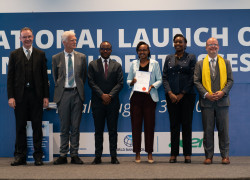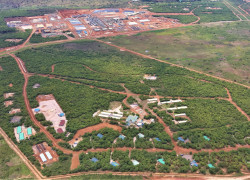Deloitte Survey: Only 11 percent of global companies report they are prepared to build the organization of the future
Business disruption demands new approaches for organizations, careers, and the future of work
Driven by the ongoing digital revolution and demographic, political, and social forces, 85 percent of the Luxembourg HR and business leaders rate building the organization of the future as their highest priority—reflecting the trend on a global scale with 90 percent. Careers and Learning are deemed important with 74 (83) percent in second place. These are some of the results of Deloitte’s 2017 Global Human Capital Trends report, “Rewriting the rules for the digital age.”
With more than 10,000 HR and business leaders in 140 countries weighing in, this is Deloitte’s largest and most extensive Global Human Capital Trends survey to date. The hallmark study – in its fifth year – reveals that leaders are turning to new organization models, which highlight the networked nature of today’s world of work. In the report, Deloitte issues a call-to-action for companies to completely reconsider their organizational structure, talent and HR strategies to keep pace with digital disruption.
“The findings are in line with our millennial studies—showing that organizations have to radically review their working and recruitment models in order to keep their competitive edge,” says Basil Sommerfeld, Partner of Operations Excellence & Human Capital at Deloitte Luxembourg. “Most importantly, organizations should capitalize on digital HR for a 21st century workforce. Leaders need to consider disruptive technologies for every aspect of their human capital needs.”
Around 70 percent of Luxembourg participants agree that developing Digital HR is essential for an organization’s success. Deloitte finds that HR is still struggling to keep pace with technological progress. This is a worldwide challenge, with only 35 percent of HR professionals rating their capabilities as “good” or “excellent.”
Building the organization of the future demands a team approach, talent-centric focus and digital solutions
As the workforce evolves, organizations are focusing on networks of teams, while recruiting and developing the right people is more consequential than ever. Survey respondents point to talent acquisition as one of the biggest issues organizations face, with 70 percent of Luxembourg companies citing it as “very important” or “important”, and 81 percent on a global scale.
Deloitte finds that 56 percent of companies are redesigning their HR programs to leverage digital and mobile tools, and 33 percent are already using some form of artificial intelligence (AI) applications to deliver HR solutions. The majority of Luxembourg participants also mentioned that they are currently re-evaluating their talent strategy and programs. However, only 16 percent are using robots, cognitive computing or AI “to some” or “a small extent” for following recruitment activities.
Organizations should better understand their employees and how their jobs are being reinvented
Deloitte found that the HR function is in the middle of a wide-ranging identity shift. To position themselves effectively as a key business advisor to the organization, it is important for HR to focus on service delivery efficiency and excellence in talent programs, as well as the entire design of work using a digital lens. The trends in this year’s report show signs of reinvention on all fronts, including jobs themselves. Organizations should approach external talent, robotics, cognitive tools, and AI systems as the “new, augmented workforce.” While many jobs are being reinvented through technology and some tasks are being automated, Deloitte’s research shows that the essentially human aspects of work – such as empathy, communication, and problem solving – are becoming more important than ever.
This shift is not only driving an increased focus on reskilling, but also on the importance of people analytics to help organizations gain even greater insights into the capabilities of their workforce on a global scale. However, organizations continue to fall short in this area, with only 8 percent reporting they have usable data, and only 9 percent believing they have a good understanding of the talent factors that drive performance in this new world of work.
The results of the full global report is available at: www2.deloitte.com/lu/hc-trends-2017.
Communiqués liés
RSA launches technology and management liability insurance s...
RSA Luxembourg, part of Intact Insurance Specialty Solutions, today announces th...
Lancement d'une nouvelle connexion intermodale entre Bettemb...
CFL multimodal a le plaisir d'annoncer le lancement de sa nouvelle connexion i...
Experts from LUNEX award first micro-credentials in Rwanda o...
The Rwanda Ministry of Education (MINEDUC) formally inaugurated Syllabi, a publi...
ERG Notes that ENRC Secures Landmark Victory as Court of App...
Eurasian Resources Group (ERG), a leading diversified natural resources group he...
LetzToken et La Vie est Belle annoncent leur partenariat ouv...
«?LetzToken?», plateforme de tokenisation pionnière basée à Luxembourg, et ...
ERG announces a Pre-Export Finance Facility Agreement based ...
Eurasian Resources Group (“ERG”, “The Group”), a leading diversified nat...
Il n'y a aucun résultat pour votre recherche







